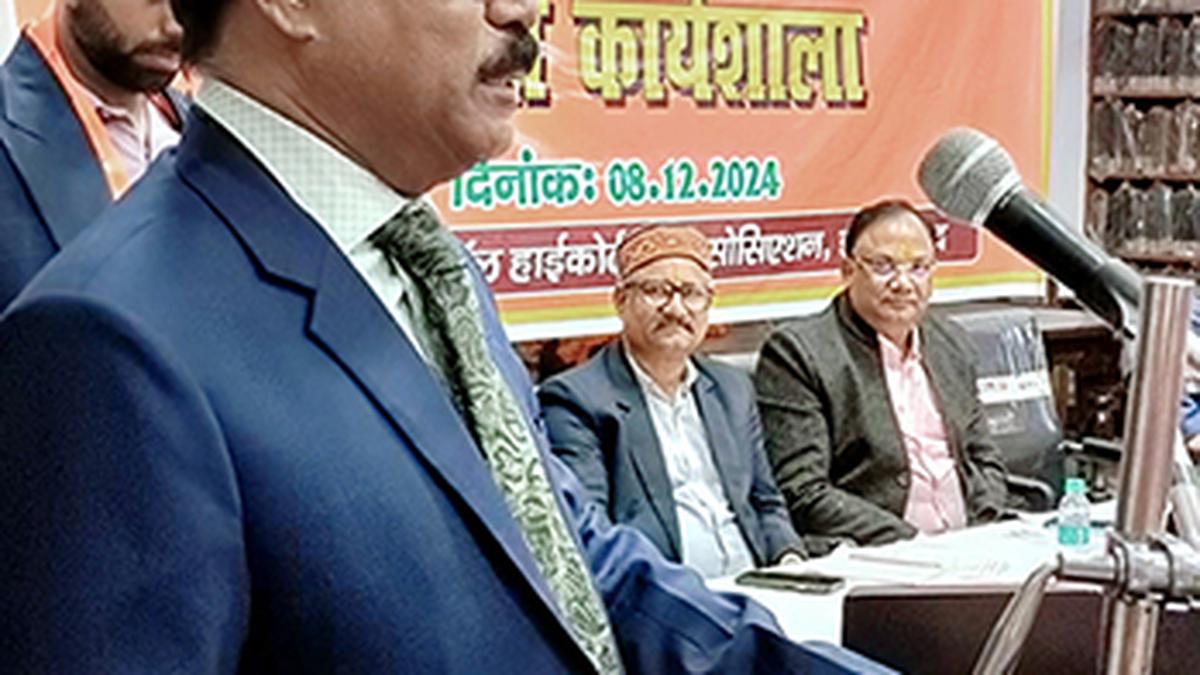 |
|
The Allahabad High Court's dismissal of the public interest litigation (PIL) challenging the impeachment motion against Justice Shekhar Yadav underscores the complexities of balancing judicial accountability with freedom of expression, particularly in the context of politically charged statements. The court's decision, delivered on January 7, 2025, hinges on its interpretation of the PIL's maintainability, specifically its relevance to vulnerable sections of the population. By deeming the petition irrelevant to such sections, the court effectively narrows the scope of what constitutes a justifiable public interest case, a decision with potential ramifications for future attempts to hold judges accountable for their public pronouncements.
Justice Yadav's speech, delivered on December 8th at a Vishwa Hindu Parishad event, ignited a firestorm of controversy. While veiled in rhetoric concerning the Uniform Civil Code, his remarks were widely perceived as containing thinly veiled attacks against the Muslim community. The judge's assertions about the 'majority' determining the nation's trajectory and his question regarding the tolerance of children raised amidst animal slaughter were seen by many as inflammatory and divisive. The subsequent viral spread of the speech's video rapidly escalated the situation, leading to demands for accountability and the eventual filing of the impeachment motion in the Rajya Sabha.
The Supreme Court's intervention, requesting a detailed report from the Allahabad High Court, highlights the gravity of the situation and the potential implications for judicial integrity. The demand for a report underscores the higher judiciary's concern with maintaining public trust in the institution. This involvement suggests a recognition of the speech's potential to erode public confidence in the impartiality and objectivity expected from judges. The subsequent filing of the impeachment motion by a group of Opposition MPs further emphasizes the serious nature of the accusations against Justice Yadav, specifically alleging 'hate speech' and 'incitement to communal disharmony'—violations of constitutional principles.
The petitioner's argument in the PIL attempted to frame Justice Yadav's statements as personal opinions expressed in a private Hindu setting, thus seeking to differentiate them from hate speech delivered on public platforms. However, this argument failed to persuade the court. The court's rejection of this line of reasoning is significant because it emphasizes that a judge's actions and words, even in seemingly private contexts, can have broader public ramifications that affect the perception of judicial impartiality and fairness. The fact that the event was organized by the Vishwa Hindu Parishad, a prominent Hindu nationalist organization, likely contributed to the widespread perception of the speech as more than a personal expression of opinion.
The Allahabad High Court's decision raises important questions regarding the boundaries of judicial conduct and the mechanisms for addressing potential misconduct. While judges, like other citizens, have a right to freedom of expression, this right is not absolute, particularly when their pronouncements can undermine public trust in the judiciary. The court's focus on the PIL's lack of connection to vulnerable sections raises questions about the scope and accessibility of judicial review mechanisms in cases involving potentially prejudicial statements by judges. The implications of this decision may extend beyond this specific case and impact future efforts to hold judges accountable for their public actions.
The case of Justice Shekhar Yadav highlights the ever-present tension between the judiciary's need to maintain its independence and its responsibility to act in a manner that upholds public trust. The decision of the Allahabad High Court emphasizes the importance of ensuring that judges maintain a degree of neutrality and avoid making pronouncements that could be construed as partisan or divisive. While the dismissal of the PIL may appear to protect the judge from immediate disciplinary action, the underlying issues concerning judicial conduct and public trust remain significant and demand continued discussion and reflection.
Moving forward, it is essential to examine how the judiciary can address similar situations more effectively, balancing the need to protect the independence of the judiciary with the importance of maintaining public trust and ensuring accountability for actions that undermine public confidence. Establishing clear guidelines regarding judicial conduct and providing effective mechanisms for addressing alleged misconduct would help to mitigate future controversies and strengthen the credibility of the institution. The case serves as a stark reminder that judicial impartiality is paramount and that even seemingly private expressions by judges can have far-reaching consequences.
